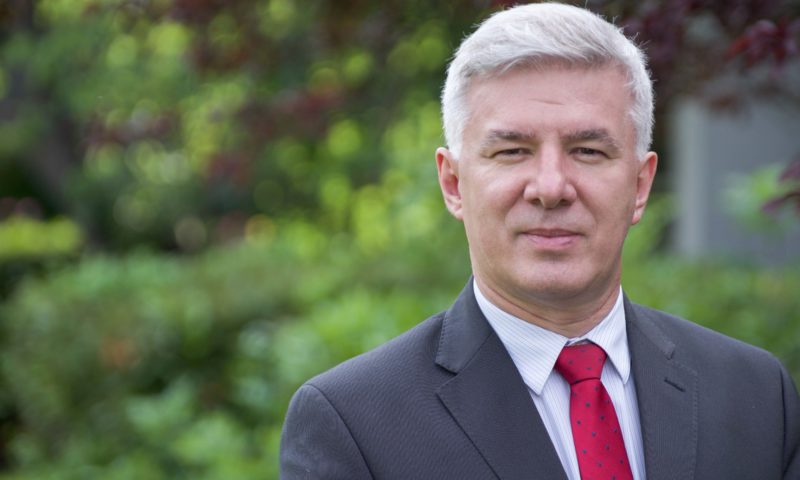As the last round of climate change negotiations start in Bangkok, Thailand, observers are calling for significant progress in the development of the rulebook to guide the implementation of the Paris Agreement.

The additional Bangkok session was reportedly scheduled following slow progress in negotiations in Bonn, Germany earlier in 2018. It is said to represent the last opportunity for countries to come together to develop the rules and processes to operationalise the Paris Agreement before COP24 in Katowice, Poland in December, when these guidelines are due to be finalised.
The rulebook, which elaborates the modalities, procedures and guidelines for the implementation of the Paris Agreement, is considered extremely important because it determines how and whether the agreement can be implemented in a manner that is ambitious and equitable or not.
Rudelmar Bueno de Faria, ACT Alliance General Secretary, said: “Major decisions on the implementation of the Paris agreement will be made at COP24 in Poland later this year, and this will depend on how much progress is made in the Bangkok negotiations. We want to see significant steps forward in all the negotiations to enable governments to make the necessary decisions when they meet at COP24.”
Martin Vogel, Chair of the ACT Alliance climate change group, sated: “The goals of the Paris Agreement to limit global warming by 1.5 degrees, to build global resilience to the impacts of climate change and to provide financial resources to support the efforts of developing countries to respond to climate change can only be achieved if the rulebook reflects the necessary transparency, accountability, and ambition and deliver climate justice that respects human rights and contributes to sustainable development.”
Chair of the Least Developed Countries (LDC) Group, Gebru Jember Endalew, said: “This additional Bangkok session will be critical to the delivery of a robust, balanced and comprehensive set of implementation guidelines for the Paris Agreement at COP24. Negotiators have one week in Bangkok before Katowice; time to develop these rules is running out and there remains a lot of work to be done. A last-minute rush in Katowice must be avoided so that the voices of poor and vulnerable countries are fully heard.”
In Bangkok, negotiators will be working from recently published “tools”, which present the various options that have been put forward by countries. According to Endalew, negotiators will need to narrow down these options to enable textual negotiations and finalisation of the Paris Agreement guidelines at COP24.
He said: “I hope all Parties to come to Bangkok ready to engage constructively on the tools, and to take part in meaningful discussion. The effectiveness of the Paris Agreement and the achievement of the 1.5°C goal and other global goals depends on the robustness of the guidelines and procedures that are developed to bring the Agreement to life.”
“In negotiating these outcomes, countries must not lose sight of the big picture. The past months have seen changing rainfall patterns in Africa and heatwaves across much of the Northern Hemisphere. Attribution science tells us these are the impacts of climate change and they will only continue to intensify if immediate action is not taken. The Paris Agreement guidelines developed this year must be guidelines that will put us on a pathway to limit warming to 1.5°C, build resilience and protect communities across the world. Recent research confirms that any more warming than this will have catastrophic flow on effects, and this is particularly true for LDCs.”
Of particular importance to the LDC Group is the issue of climate finance, for which little progress was made at the negotiations in Bonn in May 2018.
On climate finance, Endalew said: “Climate finance enables LDCs and other developing countries to avoid repeating a history of high-carbon development pathways, and to protect communities against the dire consequences of a climate crisis they did little to cause. Trillions of dollars need to be delivered to achieve the goals of the Paris Agreement. Deciding rules to ensure predictability of funds will also be key to developing countries planning effectively for climate action.”
On the 2018 Talanoa Dialogue, which continues in its preparatory phase, Endalew submitted: “The Talanoa Dialogue must build to a strong conclusion at COP24 that drives increased ambition and support, as well as enhanced national action and pledges, to put us on track to limiting warming to 1.5°C above pre-industrial levels. The LDCs know that the only way to achieve the 1.5°C temperature goal is through all countries taking on their fair share of the collective action required to bridge the gap in ambition. Those countries with greater capacity and responsibility need to step up.”
The LDC Group says it looks forward to working with other countries to develop a strong package of guidelines to implement the Paris Agreement.
As an official observer to the UNFCCC, ACT Alliance has reportedly sent a delegation of policy experts to engage with the Bangkok negotiations and to support the efforts of most vulnerable developing countries while holding government accountable to the decisions they made in Paris in 2015.
